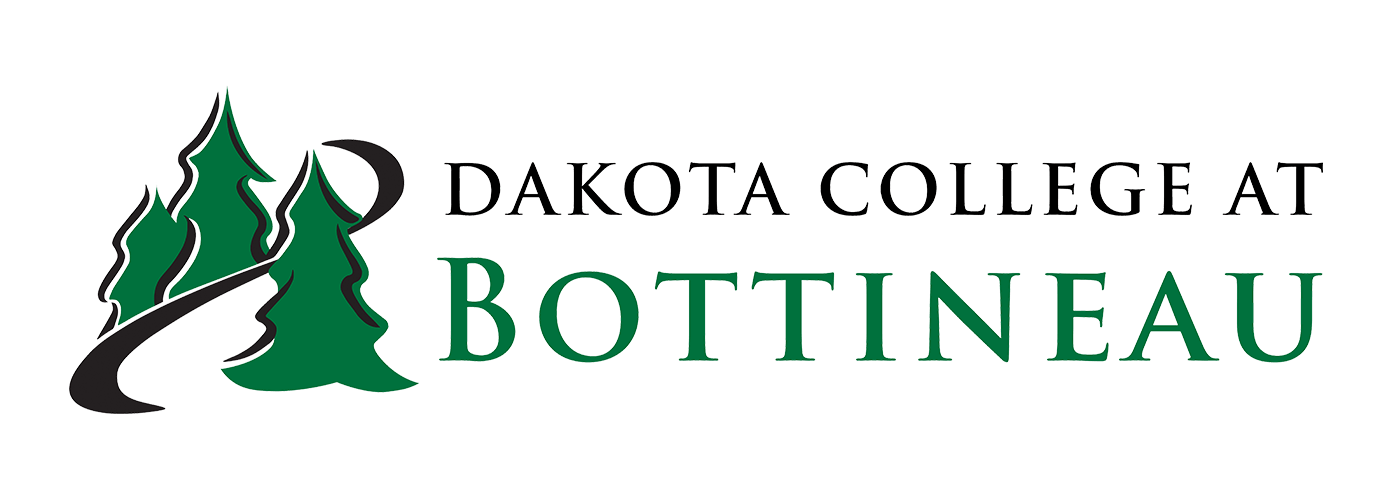The computers at Dakota College at Bottineau are dedicated to supporting the life-long learning and research activities of DCB students, faculty and staff.
Dakota College at Bottineau adheres to the Guidelines set forth in the Policies and Procedures of the North Dakota State Board of Higher Education (Section 1901.2)
Priority Use:
- Priority is given first to students, faculty and staff of Dakota College at Bottineau Campus and then to other NDUS personnel.
- Guest patrons are allowed access on an individual basis as approved by Computer Services.
Acceptable Use of Library computers:
- The four computers in the main study area of the library are RESERVED for use as the "card catalog" and/or use in doing academic research on the Web. It is NEVER permissible to use them for email, chats, word processing, surfing the net, or any other leisure activity.
- Campus public access computers on the south wall of the library are for Internet searching, and other software applications. Their use adheres to the acceptable use policies of the NDUS.
The following UNACCEPTABLE use policies are for ALL computers on campus, regardless of location.
Not Acceptable Use:
- Downloading, saving, or installing to the hard drive
- Leaving your work open on a computer
- Degrading or disrupting equipment or network performance
- Vandalizing the data of any other user
- Gaining unauthorized access to resources or entities
- Invading the privacy of individuals
- Violating federal, state, or local laws or regulations
- Engaging in any activity that is offensive or creates an intimidating or hostile environment, including Internet game playing
- Forwarding email chain letters
- Sharing logins and passwords
- Viewing pornography
Procedures for Enforcing Computer Policy when Violations are Suspected
First Incident - ”Verbal Warning"
- Verify status of computer user by asking for student identification or other picture ID. If none is available, ask for name, address, and EMPL number.
- Inform the person that their usage is inappropriate and does not conform to the campus computer policy.
- Explain to the person that they will need to review and adhere to our policies if they want to continue using the computer.
- Record the name, date, and incident on the Campus Investigation Violation form. A copy of the incident report will be forwarded to the Director of Student Services, and the campus IT security officer.
If the person does not comply -
- If the person is unwilling to cooperate by refusing to discontinue the inappropriate activity or read the policy, ask the individual to leave the lab.
- If the person is a student or individual affiliated with Dakota College at Bottineau campus, refer him/her to the instructor, librarian or individual responsible for that particular lab.
- If not affiliated with the university, tell them that they are no longer allowed to use the computers.
- If there is resistance, contact security on campus.
Second Incident - Written Warning
- If the person returns and violates policy a second time, ask the individual to leave the computer immediately.
- If the offender is a student and the identity is known, inform the individual that they will be referred to the Computer Services personnel.
- If not affiliated with the university, tell them that they are no longer allowed to use the computers.
- If there is resistance, notify security on campus.
- Record the name, date, and incident on the Campus Investigation Policy sheet. This report will again be forwarded to the same individuals as listed in #4 above.
- Computer services will investigate the incident and mail a written warning.
- The appropriate authority will meet with the offender, and, when necessary, sanctions will be conveyed to him/her in person and in writing.
Third Incident
- Loss of right to use any computer on campus. The offender is notified in person by the Dean of Student Life and the IT Security Officer.
- A fine may be imposed.
Student employees who are on duty alone can use these procedures to the extent that they feel comfortable enforcing them. If they so choose, they may merely observe the activity, record as much information about the incident as possible, and report it to their supervisor.
